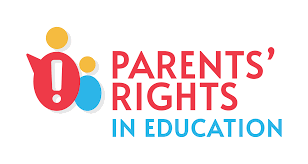
The Importance of Parental Rights
Parental rights are fundamental to the well-being and development of children. These rights encompass the legal and moral responsibilities that parents have towards their children, as well as the privileges and authority they possess in making decisions on behalf of their children.
One of the key aspects of parental rights is the right to make decisions concerning a child’s upbringing, including education, healthcare, and religious upbringing. Parents are entrusted with the responsibility to provide for their children’s physical, emotional, and psychological needs, ensuring their safety and well-being.
Parental rights also include the right to maintain a relationship with one’s child. This involves the right to custody and visitation, allowing parents to spend time with their children and nurture their bond. It is widely recognized that strong parent-child relationships are crucial for a child’s emotional development and overall happiness.
In cases where parental rights are challenged or disputed, such as in cases of divorce or custody battles, it is essential to consider the best interests of the child. Courts may intervene to protect a child from harm or neglect, but they generally aim to preserve parental rights whenever possible while prioritizing the welfare of the child.
It is important for parents to understand their rights and responsibilities towards their children. By upholding parental rights and fulfilling parental duties, parents can create a stable and nurturing environment for their children to thrive in.
In conclusion, parental rights play a vital role in shaping the lives of children and ensuring their well-being. By respecting and upholding these rights, we can promote healthy family relationships and support the growth and development of future generations.
Empowering Parenthood: 6 Essential Tips to Navigate and Uphold Your Parental Rights
- Understand your parental rights as defined by the law.
- Maintain open communication with your child and involve them in decision-making when appropriate.
- Seek legal advice or mediation if you encounter disputes regarding parental rights.
- Stay informed about your child’s education, health, and well-being.
- Respect the other parent’s rights and work towards cooperative co-parenting.
- Prioritize the best interests of your child in all decisions related to parental rights.
Understand your parental rights as defined by the law.
It is crucial for parents to understand their parental rights as defined by the law. By familiarizing themselves with the legal framework surrounding parental rights, parents can make informed decisions and advocate for their children’s best interests effectively. Knowing your rights empowers you to navigate complex situations such as custody disputes or educational decisions with confidence and clarity. Ultimately, being aware of your parental rights ensures that you can fulfill your responsibilities towards your children while safeguarding their well-being and future.
Maintain open communication with your child and involve them in decision-making when appropriate.
Maintaining open communication with your child and involving them in decision-making when appropriate is a crucial aspect of upholding parental rights. By fostering a culture of transparency and dialogue within the family, parents can empower their children to express their thoughts, feelings, and preferences. Involving children in decision-making processes not only helps them feel valued and respected but also teaches them important life skills such as critical thinking and problem-solving. By listening to their perspectives and involving them in choices that affect their lives, parents can nurture a strong parent-child relationship built on trust, understanding, and mutual respect.
Seek legal advice or mediation if you encounter disputes regarding parental rights.
When facing disputes concerning parental rights, it is advisable to seek legal advice or consider mediation as a constructive approach. Legal professionals can provide valuable guidance on navigating complex legal matters and ensuring that your rights as a parent are protected. Mediation offers a collaborative and amicable way to resolve conflicts, allowing both parties to express their concerns and work towards mutually beneficial solutions. By seeking assistance from legal experts or engaging in mediation, parents can address disputes effectively while prioritizing the well-being of their children.
Stay informed about your child’s education, health, and well-being.
It is crucial for parents to stay informed about their child’s education, health, and overall well-being. By actively engaging in their child’s academic progress, attending parent-teacher meetings, and monitoring their educational needs, parents can provide valuable support and encouragement for their child’s learning journey. Similarly, staying informed about their child’s health by scheduling regular check-ups, addressing any concerns promptly, and promoting healthy habits can ensure the well-being of the child. By staying involved and informed in all aspects of their child’s life, parents can better advocate for their needs and contribute to their overall growth and development.
Respect the other parent’s rights and work towards cooperative co-parenting.
Respecting the other parent’s rights and fostering a spirit of cooperative co-parenting is essential for the well-being of children in shared custody arrangements. By acknowledging and honoring each parent’s role in their child’s life, families can create a harmonious environment where children feel supported and loved by both parents. Effective communication, mutual respect, and a willingness to collaborate are key components of successful co-parenting that can help children navigate the challenges of divorce or separation with greater resilience and emotional stability.
Prioritize the best interests of your child in all decisions related to parental rights.
It is crucial to prioritize the best interests of your child in all decisions related to parental rights. By placing your child’s well-being at the forefront of every choice you make, you are ensuring that their needs and happiness are paramount. Considering what is truly best for your child, even in challenging situations, can lead to more positive outcomes and foster a strong and healthy parent-child relationship based on trust and understanding.
